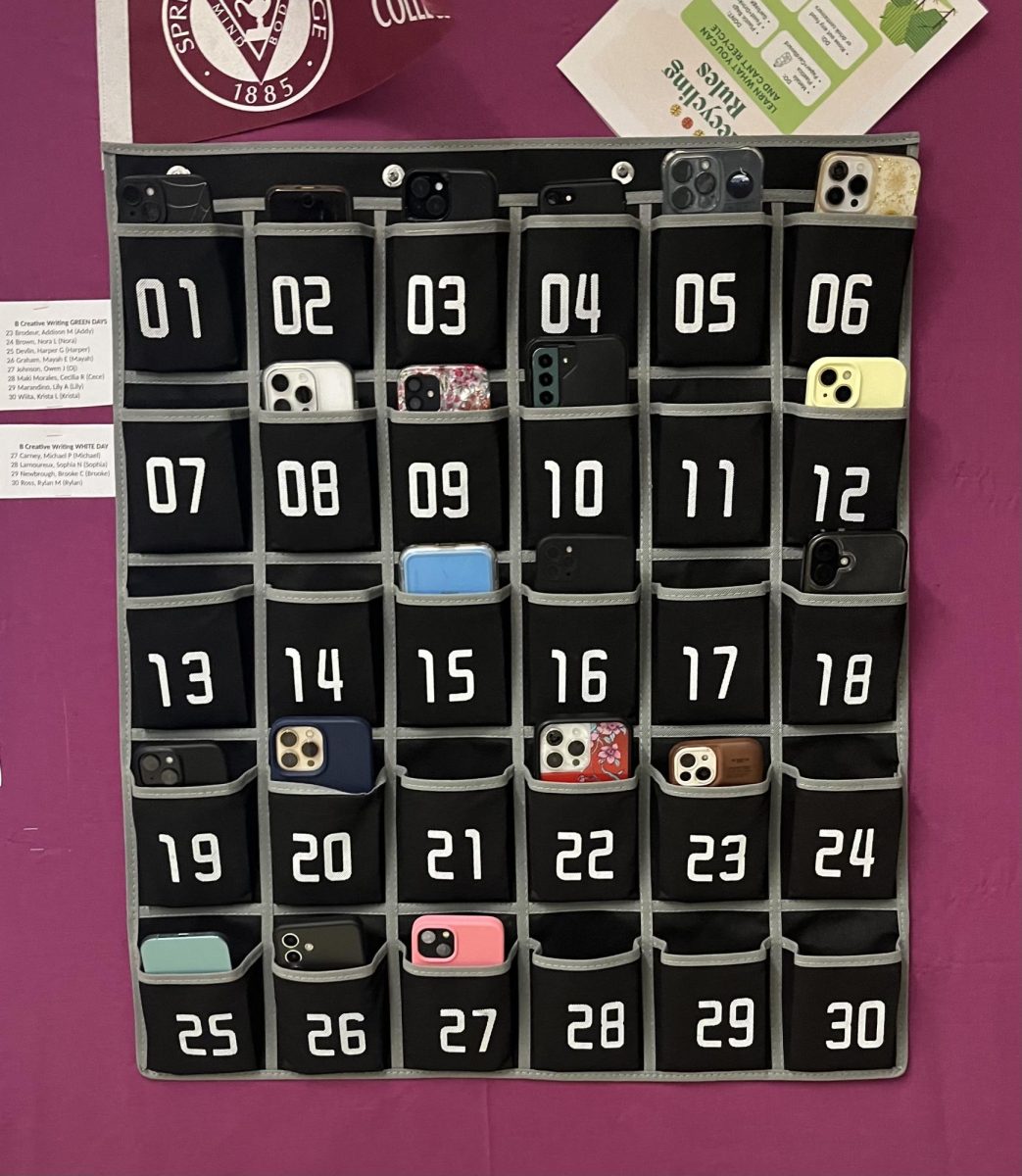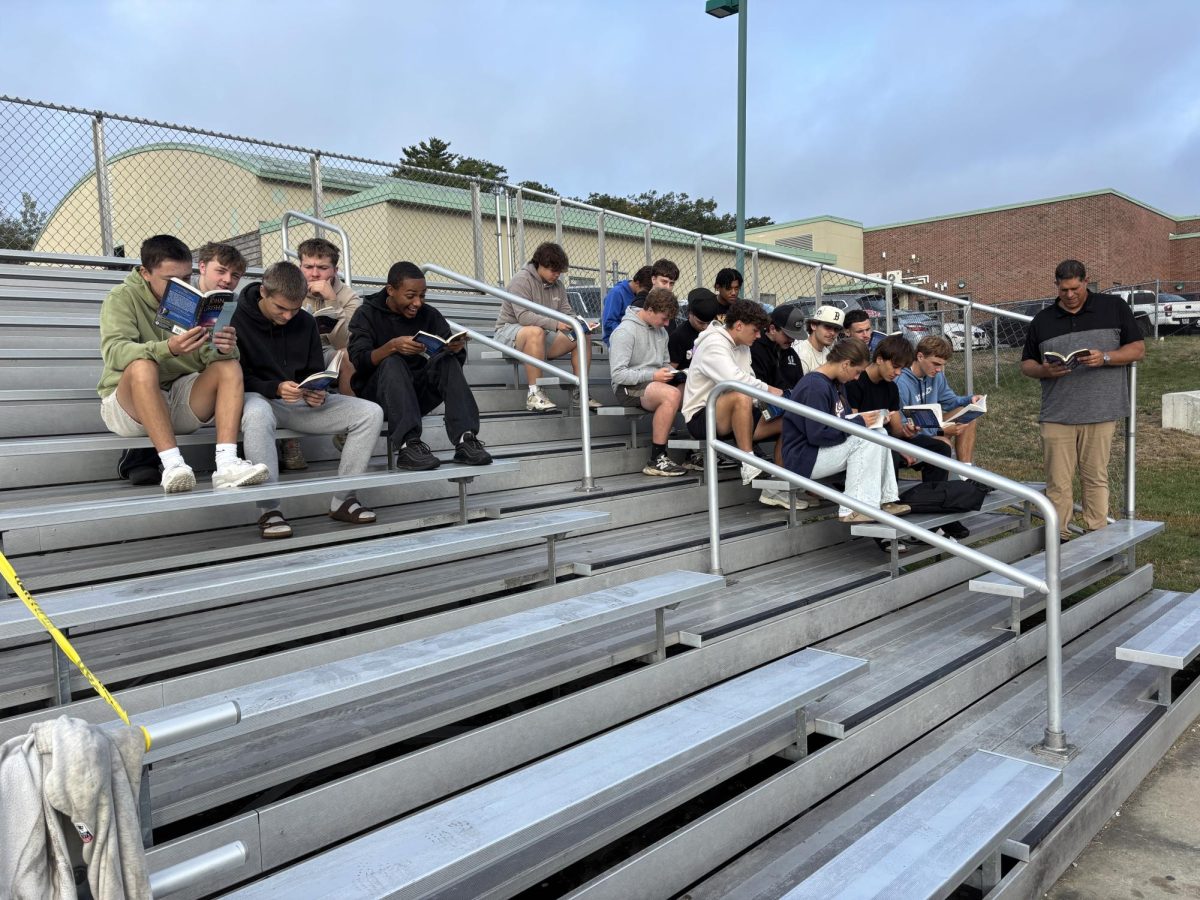Problematic: a word that most teachers, students, and staff would use to state the situation of next year’s phone ban.
On July 31, 2025, the Massachusetts Legislature established a new bill deciding to take students’ phones away during the school day. This decision is leading to diversity within schools and is being flooded with different opinions on how to handle the situation.
“It’s difficult to find a way to handle the situation when everyone has their own opinion,” said Assistant Principal of Oakmont, Mrs. Eleni Marinelli. “I feel like it’s a good idea to bring students… their families… and the school staff to make a decision on where to keep the phones throughout the day.”
Sophomore Amelia Lowry, a student at Oakmont High School, shares her personal feelings and opinion of the situation. “I honestly think it’s kind of dumb because it limits communication, like you can’t contact parents as easily,” Amelia said.
The Senate declares the bill aims to boost focus, better classroom environments, and improve mental health. “The results in other states that have enacted similar legislation are startling: students are more engaged, become more proficient in their studies, and the student-teacher relationship is enhanced.” Said Senator Michael J. Rodrigues, Chair of the Senate Committee on Ways and Means.
Countless studies and research have shown that cell phones being taken away have caused the classroom environment to become more proficient and interactive.
According to the Pew Research Center, surveys have shown that 72% of high school teachers report that cellphone distractions are a major problem in the classroom.
“I believe that it is important for students to stay focused,” said Marinelli. “I think that removing the phones completely can help students academically and emotionally.”
Research from KFF’s Cellphone Ban article shows that multiple states have agreed to apply classroom cell phone bans to eliminate distractions and help with youth mental health. Surveys have demonstrated that not only teachers and staff agree with this principle, but also families.
“I find myself and my family sometimes on social media mindlessly scrolling,” Marinelli spoke of her own experience with the troubles of social media. “I think people feel isolated when they surround themselves with social media, so if we were to take that away from them only for the day, I think that it will give students an opening to make new friends and give each other different opportunities.”
After questioning about the impact this will have on learning and how it is beneficial, Marinelli responds with “Absolutely, I feel like I would see more students engaged in their learning.”
“I’m a strong believer in boredom leading to good creativity,” said Marinelli, talking about the phone ban helping students and benefiting their learning.
Multiple local high schools and even middle schools are beginning to obtain the students’ phones during the day. Teachers and staff struggle to agree on a way to keep the students’ phones away.
“Our students and classmates will definitely become better with communication and will most likely collaborate more with each other without a distraction,” said Marinelli.






















